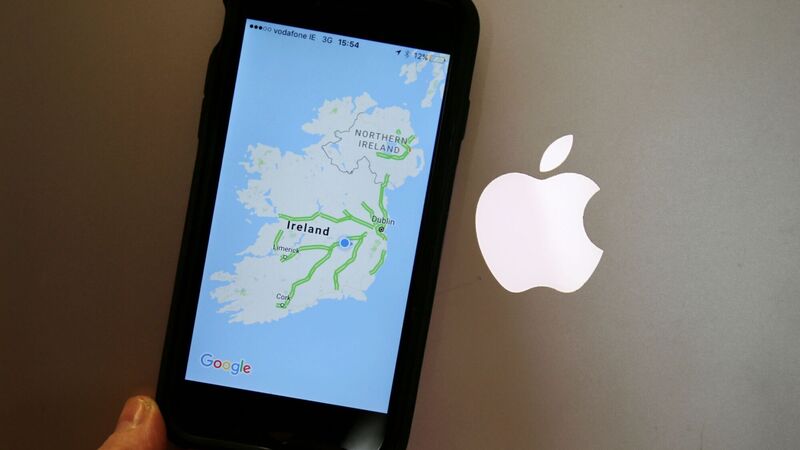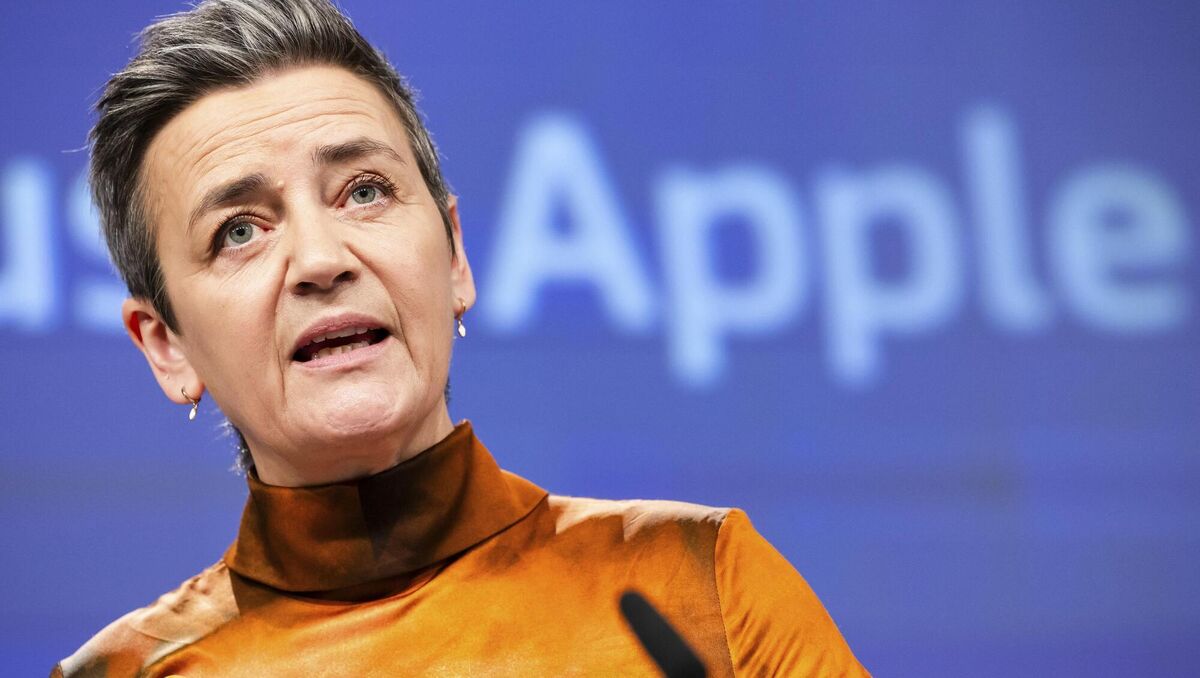EU Commissioner: What Ireland does with €13bn from Apple tax case up to the Government

EU Commissioner for Competition Margrethe Vestager described the ruling as a 'big win' for European citizens and 'tax justice'. File picture
The Government will “respect the findings” of Europe’s top court following a ruling in the long-running Apple State aid case which will see the tech giant pay back €13bn in taxes.
Earlier today, the Court of Justice of the European Union (CJEU) ruled against Apple in its latest legal bid to quash a €13bn tax order the EU Commission said it owes to Ireland. Ireland had been supporting Apple in its attempts to overturn the ruling.
EU Commissioner for Competition Margrethe Vestager described the ruling as a “big win” for European citizens and “tax justice”.
A spokesperson for the Government said the State will consider the ruling “carefully” adding that their position has “always been that Ireland does not give preferential tax treatment to any companies or taxpayers”.
“Today’s judgment provides the final determination in this case and the process of transferring the assets in the Escrow Fund to Ireland will now commence in the manner prescribed in the Deed governing the operations of the Escrow Fund,” the spokesperson added.
Tánaiste Micheál Martin said the Government would now consider the ruling while adding that the funds due to be received were only a “one-off”.
“It cannot be used for day-to-day spending, and the Government will now give careful consideration on how to use these funds in the best interests of the Irish people,” Mr Martin said.
Mr Martin defended Ireland’s decision to back the case, saying that the “whole thrust of Government policy over many years has been to focus on job creation”.
“Ireland has been fortunate to see many employers provide significant numbers of high-quality jobs across our country,” Mr Martin said, highlighting Apple in particular at their Cork campus.
“Ireland contested the European Commission’s argument and appeal because we felt it was important to defend the integrity and independence of our economic strategy,” Mr Martin said.
“But it was also to protect jobs. Every international company that chooses to locate in Ireland looks for certainty and that is the foundation stone of our industrial policy.
“This was a highly contested case, shown by the fact Ireland won its case in the EU’s General Court before the European Commission proved successful in its appeal today.”
A number of opposition parties have criticised the Government’s approach to the tax case, with Róisín Shortall of the Social Democrats saying that the State had defended corporate interests rather than the public interest.
“This government, which has continued the legal fight, must now explain to the people why it has spent eight years fighting this case when it could have had additional billions of euro at its disposal to build tens of thousands of affordable homes or invest in threadbare disability services,” Ms Shortall said.
Labour’s Ged Nash described the judgement as being “a landmark one”, while calling for Finance Minister Jack Chambers to issue a statement outlining the wider implication of the judgement on Irish tax policy.
Mr Nash also called for the windfall to be provided to the Government should be directed to both “housing and infrastructure development”.
Aontú leader Peadar Tóibín called for both Mr Chambers and Public Expenditure Minister Paschal Donohoe to immediately appear before the Oireachtas Finance Committee to explain the reason why the Government fought the legal case.
The EU Commission has welcomed the ruling by the CJEU with Ms Vestager saying it confirmed that Ireland gave Apple “unlawful aid” which now has to be recovered.
"It's a win for the Commission. It's also a win for the level playing field of the internal market and for tax justice,” she said.
Ms Vestager explained that in 2016, the Commission concluded that two Irish tax rulings constituted illegal state aid.
"They had artificially lowered taxes paid by Apple in Ireland since 1991. The commission considered this to be a misapplication of Irish tax rules and ordered Ireland to recover up to €13bn from Apple,” she said.
According to the Commissioner, the tax rulings in Ireland attributed the bulk of taxable profits of two Irish subsidiaries of Apple to what “was a stateless head office”.

“These head offices, they existed only on paper, no tables, no chairs, no activities. The profits were thus not taxed anywhere,” Ms Vestager said.
"This means that the recovery taxes, which have been on an escrow account now for quite some years in Ireland during these ongoing court proceedings, must be released to the Irish state.”
Ms Vestager said what Ireland does with the €13bn is now up to the Government.
She added that EU Member States still have the right to set their own corporate tax system but all companies must play by the same rules.
"The Commission can exercise control to avoid that undertakings receive an unfair tax advantage through rulings that derogate from national law, domestic case law or administrative practices. So once the Member States have exercised their fiscal sovereignty, the tax administration needs to abide by its own rules.”
In its ruling, the CJEU said it is setting aside the ruling of the EU General Court which quashed the tax order originally in 2020.
In 2016, the European Commission found that Apple received illegal state aid from Ireland following a three-year investigation but successive appeals by Apple and Ireland have been making their way through the courts ever since.
In 2020, the EU’s General Court ruled that the European Commission “did not succeed in showing to the requisite legal standard” and that Apple had received tax advantages from Ireland, ruling in favour of the tech giant.
The decision was subsequently appealed to the European Court of Justice by the Commission.
Today, the CJEU said the General Court erred in its ruling and set it aside which means Apple will have to release the funds from the escrow account.











